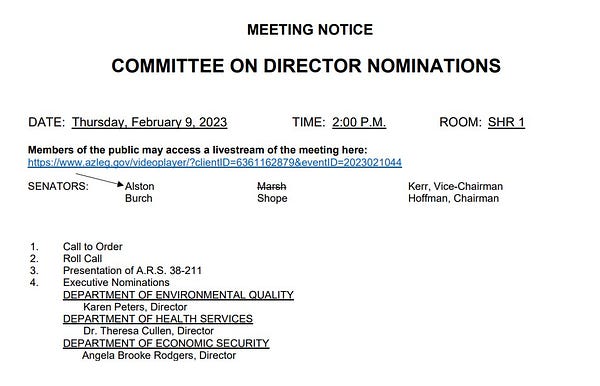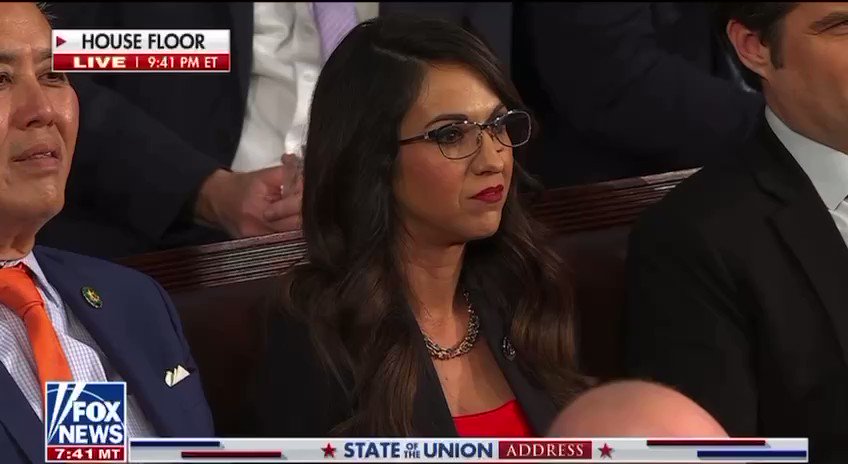The Daily Agenda: Don't sleep on Pinal
It's the little county with big problems ... We're naming names ... And Wendy Rogers, Bono and Paul Pelosi walk into a committee.
Multiple election snafus, a supervisor who falsely accused his colleagues of various malfeasances, major environmental change, an expanded highway plan that fell apart — Pinal County has it all.
The most recent local drama involves a Pinal scandal frequent-flier, Supervisor Kevin Cavanaugh. He accused two Pinal County Attorney’s Office employees of having an inappropriate sexual relationship, reporting the alleged improprieties to the now-deputy county manager and county attorney.
The two employees sued Cavanaugh for $13 million, and the county commissioned an outside investigation, the results of which were released this week and showed that there was no factual basis for the claims. Cavanaugh voted against releasing the report because he said it was incomplete, but his colleagues disagreed. (We posted the full report here and recommend reading the Republic’s story about the report’s findings by Sasha Hupka.)
In the report, it readily becomes clear how flimsy this rumor was: Cavanaugh offered investigators three people who could back up his claims, none of whom did, and one of whom was a “chatty” woman whose name he did not know who he “allegedly encountered in Coolidge when he was out walking his dog” who may have been a retired employee of the county attorney’s office. (Another person Cavanaugh said had told him of the affair was a former employee of Cavanaugh’s office, who has herself filed a lawsuit against him for discrimination.)
“The issue is, we don’t have anybody that’s retired from my office that lives in Coolidge,” County Attorney Kent Volkmer told the investigators. “That doesn’t exist. There’s nobody that fits that description. He couldn’t give me a name. He couldn’t give me anything. So there’s this amorphous third woman, he did say it was a woman.”

Cavanaugh has made other complaints about county supervisors and officials and, in one case, Arizona Rep. David Cook, which have largely been dismissed. In the report, Cavanaugh explained he simply brings up things he hears from others to be investigated, but doesn’t investigate whether the issues are true first because it’s “not my job to investigate.” Just last week, Cavanaugh filed extensive records requests to several county offices seeking documents related to the 2022 election.
In one instance, he alleged that Supervisor Mike Goodman had had his driveway paved by a county contractor, which was easily debunked by the fact that Goodman’s driveway was not actually paved at all.
“My driveway is still dirt; my entire road is still dirt,” Goodman told Pinal Central last March, after the probe was concluded. “How difficult would that have been to make a drive-by?”
The complaints and subsequent investigations hinder supervisors’ ability to work together and have harmed county employees. One of the two attorneys who sued, for instance, told the Republic Cavanaugh’s allegations ruined his home life. And the investigations, both internal and external, cost taxpayers money. The county has spent at least $29,000 in Cavanaugh-related legal fees, which doesn’t include outside investigators or counsel covered by county insurance or staff time spent by the county attorney’s office, county spokesman James Daniels said via email.
Beyond that, the repeated problems underscore Pinal County’s status as the most underrated Arizona county for news value. The third-most populous county in the state, it’s sandwiched between the two biggest cities, Phoenix and Tucson. Over the past couple decades, Pinal’s population has exploded. In just the past year, two major election problems bubbled up, becoming national news. The sheriff, Mark Lamb, is a national figure. Cavanaugh and his repeated complaints about other people have provided endless fodder for the local paper in Pinal, sometimes picking up coverage beyond the county.
It’s not just political intrigue and election fallout that makes Pinal perfect for more news coverage, either. Farmers in the area have seen major water cuts, forcing them to adapt their practices. As the county grows, transportation becomes a big concern, though an effort to get federal funding to expand the interstate cutting through the county fell flat.
We’ve kept our eye on Pinal for the past year because we think the big stories happening there are important in their own right while also showing some larger trends beyond the county. We hope everyone else is starting to see just how newsworthy the county is.
Crisis averted again: Republican senators in the Freedom Caucus trashed Arizona’s public school system as a disgraceful failure yesterday as they voted against allowing schools to spend the $1.3 billion that lawmakers allocated last year over the school spending limit. But the Senate still got the two-thirds supermajority vote necessary to lift the school spending cap, ending the potentially school-closing crisis for this year. The bill takes effect immediately and does not need the governor’s signature. The lawmakers who voted against lifting the cap are: Reps. Neal Carter, Joseph Chaplik, Lupe Diaz, Liz Harris, Justin Heap, Laurin Hendrix, Rachel Jones, Alex Kolodin, Cory McGarr, Steve Montenegro, Barbara Parker, Jacqueline Parker, Beverly Pingerelli and Austin Smith, and Sens. Frank Carroll, David Farnsworth, Jake Hoffman, Anthony Kern, Wendy Rogers, Janae Shamp and Justine Wadsack.
Phil keeps the clicks rolling: The Republic published a rebuttal to that Phil Boas column slamming kids who use pronouns other than those assigned at birth that drew the ire of the Republic’s diversity committee. In the rebuttal, the parents of a transgender child write that Boas spread misinformation that harms trans kids. Meanwhile, the Copper Courier has a profile of longtime Capitol lobbyist Gaelle Esposito, who recently transitioned and offered her first testimony at the Capitol as a woman against the bill.
“The idea that schools are transitioning a student secretly to fill some agenda just isn’t true, and it is recklessly irresponsible to write a column implying that,” the parents wrote.

She speaks: Guillermina Fuentes, the former San Luis mayor who was arrested and spent a month in jail for delivering four ballots from members of her community to elections officials in the August 2020 primary, spoke to reporter Kira Lerner about her community, the charge and her time in jail, calling her prosecution a “witch hunt.” People in San Luis do not have regular mail service, and the family is still dealing with online conspiracies over the case.
You’re telling me celebrity nonprofits are scams?: First Lady Jill Biden is coming to Arizona for the Super Bowl and will host an event in Mesa Monday to highlight the president’s economic wins, KTAR’s Danny Shapiro reports, adding that details of her visit remain sparse. Meanwhile, the Jason Wolf posted a five-part investigative series in the Republic about how some of the biggest charities run by NFL players aren’t very charitable. They spend most of their money on salaries.


Sounded like he was attacking you: Former lawmaker Paul Boyer penned an op-ed in the Glendale Independent about his run for mayor that leans on his victories as a lawmaker and says the city’s leadership has for too long ignored the will of citizens who deserve better. Current Mayor Jerry Weiers, also a former lawmaker, responded with his own op-ed saying Glendale deserves better than Boyer, who is attacking “our city, our people, and our successes.”
Republicans are lit on weed regs: A pair of competing weed regulation bills are moving at the Capitol. A bill from Republican Sen. Janae Shamp has the backing of pro-pot organization NORML and would close testing loopholes that allow dispensaries to hide pesticides in their ganja and claim higher THC levels, thus boosting the price. Democratic Rep. Jennifer Longdon’s bill, which has the backing of dispensaries, would create a state bud testing lab as a double-check on the existing system, but wouldn’t close those loopholes, the Republic’s Ryan Randazzo reports.

Send cash in the mail to subscribe?: Republican Rep. Joseph Chaplik wants to fine businesses that don’t accept cash, Capitol Media Services’ Howie Fischer reports. More businesses started refusing cash during the pandemic, but Chaplik says he’s trying to help the “unbanked.”
Justice at last: The Republic’s Robert Anglen and Miguel Torres detail the downfall of once-powerful attorney and judicial candidate Edward Maldonado, who was convicted of sexual assault against a fellow lawyer after attempting to use his influence to discredit his accusers and derail investigations against him.
You hear what you wanna hear: The Arizona Daily Star’s Tim Steller read a bad book written by the rancher in Santa Cruz County who shot and killed a migrant from Mexico last month, saying just like people’s view of the case, the book relies on tired old tropes about life on the border.
No water for donkeys: The Hangry Donkey Sanctuary sanctuary in Rio Verde Foothills is struggling to afford water for its 25 long-eared residents because the price of trucked-in water has tripled in recent months since Scottsdale cut off the tap to the community, Scottsdale Progress’ J. Graber writes. The donkeys need about 300 gallons of water a day, which costs around $33 now. Rose Carroll, the owner of the donkey sanctuary, doesn’t care how politicians fix this problem, she just wants water for her animals.
Podcasts are fleeting, monuments are forever: There’s a new podcast coming out this week about murdered journalist Don Bolles that claims to have uncovered new information about the case, ABC15 notes. The preview episode to the series from Criminal Minded Media, which has done podcasts about Biggie Smalls and Donald Trump, declares that “no one on the side of law enforcement has just told the truth” about his murder and that some “power players inside the state of Arizona still wanna cover up why Bolles was killed.” Separately, the company is also producing a podcast with longtime Arizona investigative journalist Jana Bommersbach based on her book about Debra Milke, who was the only woman on Arizona’s death row until her conviction was overturned after 24 years in prison.
Keep reading with a 7-day free trial
Subscribe to Arizona Agenda to keep reading this post and get 7 days of free access to the full post archives.





